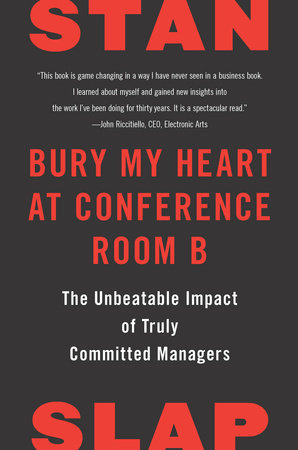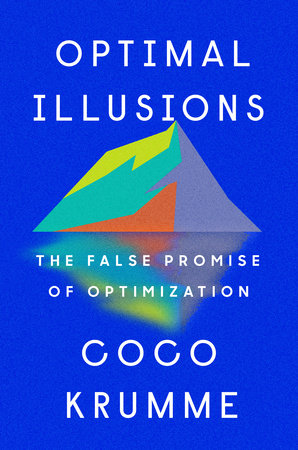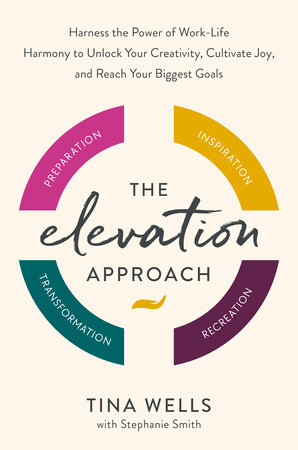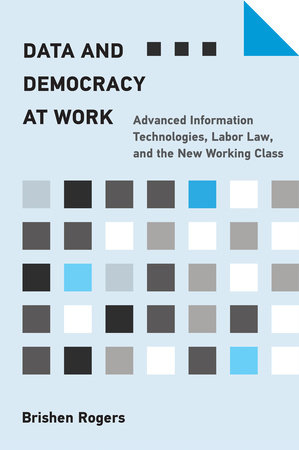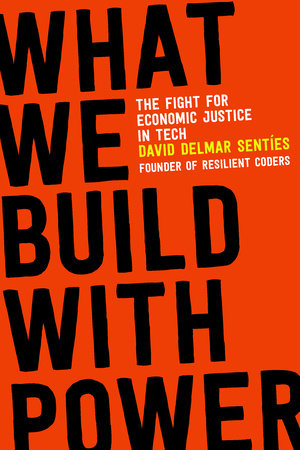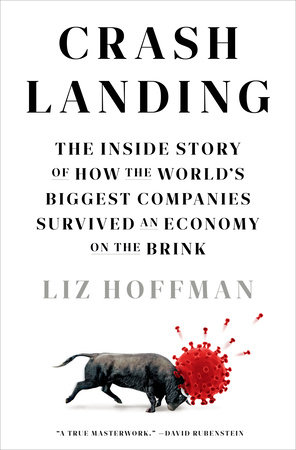Quick Summary
One Sentence Summary
“Bury My Heart at Conference Room B” by Stan Slap is a provocative guide to achieving genuine employee commitment, blending emotional intelligence with management strategies.
Big Idea
The core concept is that managers can unlock profound commitment from their employees by allowing them to express their personal values in the workplace, fundamentally changing the employee-manager relationship.
Five Key Ideas
- Personal Values in Professional Settings: Emphasizing the importance of integrating personal values into the workplace for deeper engagement.
- Emotional Commitment: Discussing how emotional commitment from employees drives performance more effectively than mere compliance.
- Management Reimagined: Challenging traditional management practices and advocating for a more humane and values-driven approach.
- Culture as a Catalyst: Exploring how a strong, values-based culture can propel an organization towards success.
- Actionable Strategies: Providing practical strategies for managers to foster an environment where personal values are respected and leveraged.
Actionable Advice
Encourage managers to engage in open conversations with their teams about personal values, and to find ways to align these values with the organization’s goals, creating a more meaningful and committed workforce.
About the Author
Stan Slap is a renowned thought leader and corporate strategist, specializing in business culture and transformation, known for his expertise in employee and customer commitment.
Read Next
For deeper insights into workplace culture and leadership:
- “Drive” by Daniel H. Pink for understanding what motivates us.
- “Leaders Eat Last” by Simon Sinek for exploring the role of leadership in creating trusting teams.
- “The Culture Code” by Daniel Coyle for practical insights into building successful teams.
- “Dare to Lead” by Brené Brown for a focus on vulnerability and courage in leadership.
- “First, Break All the Rules” by Marcus Buckingham and Curt Coffman for unconventional wisdom on management.
In Depth
Personal Values in Professional Settings
In “Bury My Heart at Conference Room B,” Stan Slap emphasizes a groundbreaking idea: integrating personal values into professional settings. He argues that when employees can express their core values at work, their engagement and commitment skyrocket.
The traditional workplace often separates personal and professional lives. Slap challenges this. He suggests that when personal values align with work, employees don’t just work for a paycheck or a promotion; they work for something more profound and fulfilling.
Slap gives an example of a company that realized its employees valued environmental conservation. The company then implemented green initiatives. This alignment led to increased employee satisfaction and productivity. People felt their job was not just a job, but a platform to express what mattered to them.
“When personal values are activated, they become supercharged with emotion. This is the electricity that can light up the typical corporate values from within.” – Stan Slap
This quote from the book underlines the emotional power that personal values can bring to the workplace. It’s not just about ticking boxes; it’s about igniting passion.
Slap’s idea goes beyond just feeling good. He connects it to tangible outcomes. When personal and professional values align, employees are more likely to go the extra mile, solve complex problems, and stay committed even in tough times.
Implementing this isn’t just about asking employees what they value. It’s about creating a culture where these values are lived and breathed. It’s about leaders modeling this integration themselves, showing vulnerability, and truly listening to their teams.
The key is authenticity. It’s not a one-off team building exercise. It’s an ongoing commitment. When done right, it leads to a workplace where employees don’t just show up; they bring their whole selves, their passion, and their values. This is the heart of what Slap is advocating for – a workplace revolutionized by the power of personal values.
Emotional Commitment
Stan Slap places immense value on emotional commitment in the workplace. He argues that when employees are emotionally invested, they bring more than just their skills; they bring their hearts.
Emotional commitment is about more than just liking your job. It’s a deep connection, where employees feel their work matters on a personal level. This kind of commitment drives higher performance, as employees are not just working; they’re fighting for a cause they believe in.
In the book, Slap gives an example of a sales team that was underperforming. The usual incentives didn’t work. So, the company shifted its approach. They connected the team’s work to the impact it had on customers’ lives. Salespeople weren’t just selling a product; they were improving lives. This emotional connection turned the team around, leading to remarkable performance improvements.
“Emotional commitment means unchecked, unvarnished devotion to the company. It means caring about the company’s welfare as if it were your own.” – Stan Slap
This quote encapsulates the essence of emotional commitment. It’s not just about doing a job; it’s about caring deeply, as if the company’s successes and failures are personal.
Slap emphasizes that emotional commitment can’t be bought. It’s earned. It comes from leaders who are genuine, who communicate openly, and who show they care about their employees not just as workers, but as people.
Building emotional commitment means understanding what drives your employees at a fundamental level. It’s about aligning their work with something they genuinely care about. When employees see that their work has meaning, their commitment is unshakable.
This idea transforms how we think about motivation. It’s not just about incentives or fear of consequences. It’s about tapping into something deeper, something inherently human – the need to be part of something bigger, to have our work mean something.
In essence, Slap is pointing out that the heart of business isn’t numbers; it’s people. And when these people are emotionally committed, they don’t just meet targets; they shatter expectations.
Management Reimagined
Stan Slap proposes a radical rethinking of management in “Bury My Heart at Conference Room B.” He suggests shifting from a traditional, hierarchical approach to one that’s more human-centered and values-driven.
In the book, Slap presents the case of a company struggling with high turnover. Traditional management tactics, like stricter rules and increased supervision, only worsened the situation. The breakthrough came when management began focusing on individual needs and aspirations, treating employees not as cogs in a machine but as individuals with unique contributions.
The company created platforms for employees to voice their ideas and concerns. Managers became facilitators rather than enforcers. This shift led to a dramatic decrease in turnover and an increase in employee satisfaction and productivity.
“True management is not about controlling people, it’s about caring for people; and it’s not about being in power, it’s about empowering others.” – Stan Slap
This quote highlights Slap’s view on what modern management should embody: care and empowerment. It’s a move away from the command-and-control style to one that’s more collaborative and empathetic.
Slap argues that this reimagined management style fosters a more genuine commitment. Employees feel valued and understood, which in turn, encourages them to invest more deeply in their work and the company.
The key, according to Slap, is for managers to understand their own values first. This self-awareness allows them to lead with authenticity, making genuine connections with their teams. It’s about leading by example, showing vulnerability, and being open to feedback.
He also emphasizes the importance of trust. In this new paradigm, managers trust their employees to make decisions and give them the autonomy to do so. This builds a sense of ownership and responsibility, driving better results.
This approach goes beyond just getting tasks done. It’s about building relationships, fostering a sense of belonging, and creating an environment where people can thrive.
In essence, Slap is advocating for a management revolution. It’s a shift from seeing management as a position of authority to a role of mentorship and support. In this landscape, managers are not just overseers; they’re cultivators of talent and nurturers of a values-driven culture.
Culture as a Catalyst
Stan Slap emphasizes the immense power of culture in transforming organizations. He argues that a strong, values-based culture acts as a catalyst for success, driving engagement, loyalty, and performance.
In the book, Slap presents a compelling example of a tech company struggling with innovation. Despite having talented employees and resources, they weren’t breaking new ground. The issue was cultural: a fear of failure stifled creativity. The company then embarked on a cultural overhaul, emphasizing values like risk-taking, open communication, and celebrating failures as learning opportunities. This shift led to a surge in innovation and put the company back on the map as an industry leader.
“Culture isn’t just one aspect of the game; it is the game. In the end, an organization is nothing more than the collective capacity of its people to create value.” – Stan Slap
This quote underlines the centrality of culture. It’s not a side issue; it’s the very essence of what makes organizations thrive or dive.
Slap argues that when a company’s culture aligns with its employees’ values, it unleashes enormous energy and potential. People don’t just comply; they contribute passionately. This alignment creates a sense of belonging and purpose, which in turn drives greater commitment and better results.
Creating such a culture requires more than just defining values on paper. It demands consistent action and behaviors that reflect those values. Leaders play a crucial role here. They must embody the culture and set the tone, creating an environment where values are lived daily.
Slap also stresses the importance of authenticity in culture-building. It’s not about imitating what other successful companies do. It’s about finding what’s true and unique to your organization and nurturing that.
Building a values-based culture is not a quick fix; it’s a journey. It requires patience, commitment, and often, hard decisions. But the rewards are immense. A strong culture acts like a magnet, attracting the right talent, fostering innovation, and building resilience.
In summary, Slap’s idea of culture as a catalyst offers a profound insight: the heart of organizational success lies not in strategies or systems, but in the human spirit that’s nurtured within its culture.
Actionable Strategies
Stan Slap provides actionable strategies for managers to create an environment where personal values are not just respected but leveraged for organizational success. He emphasizes that understanding and aligning with employees’ values is key to unlocking their highest potential and commitment.
A standout example in the book involves a retail company facing declining customer satisfaction. The issue wasn’t the product but the lack of connection between employees and customers. The company implemented a strategy encouraging employees to interact with customers based on shared values, like community and quality service, rather than just making sales. This approach transformed the shopping experience, leading to increased customer loyalty and improved employee morale.
“You can’t sell it outside if you can’t sell it inside. You have to make the values mean something powerful to your employees before they will mean anything powerful to your customers.” – Stan Slap
This quote highlights the interconnectedness of internal values and external impact. It’s about making values tangible and relevant to employees first.
Slap suggests several actionable strategies:
- Values Identification: Conduct sessions to help employees identify their personal values and how these can be expressed in their work.
- Open Dialogue: Foster an environment where employees feel comfortable sharing their values and discussing how these align with the company’s goals.
- Values Integration: Implement policies and practices that reflect the company’s and employees’ shared values.
- Leadership by Example: Encourage leaders to model these values in their actions and decision-making processes.
- Recognition and Reinforcement: Acknowledge and celebrate when employees demonstrate these values in their work.
- Continuous Feedback: Establish a system for regular feedback, ensuring values alignment remains a dynamic and ongoing process.
Slap’s strategies aren’t about one-time initiatives; they’re about embedding values into the very fabric of the organization. It’s a comprehensive approach, involving everyone from top leadership to new recruits.
These strategies underline a core belief: When employees see their work as a platform to express and live their values, they don’t just comply with expectations; they exceed them. This approach leads to a workplace where commitment is not enforced but willingly given, where employees don’t just work for a company; they advocate for it.
In summary, Slap’s actionable strategies offer a blueprint for building a values-driven workplace, transforming not just employee engagement but the entire organizational ethos.
Actionable Advice
- Discover Personal Values: Encourage employees to identify their core values. Host workshops or one-on-one sessions for this exploration.
- Align Values and Work: Find ways to integrate employees’ personal values with their work responsibilities. Create roles or projects aligned with their beliefs.
- Lead by Example: Demonstrate how leadership embodies company values. Share personal stories where these values influenced decisions.
- Foster Open Communication: Establish regular forums for employees to voice their thoughts on how well the company aligns with their values.
- Celebrate Value-Driven Actions: Recognize and reward employees who exemplify company values in their work.
- Create Value-Based Goals: Set team and individual goals that reflect both company and personal values.
- Implement Continuous Feedback: Regularly check in with employees to assess how well the company is upholding its values and theirs.
- Cultivate Trust and Autonomy: Show trust in employees’ judgment. Give them autonomy to make decisions aligned with shared values.
- Encourage Risk-Taking: Create a safe environment for employees to take risks in line with company values, learning from both successes and failures.
- Evolve with Feedback: Be open to evolving company policies and culture based on feedback to better align with shared values.
About the Author
Stan Slap is a renowned corporate strategist and the CEO of SLAP, an international consulting company specializing in achieving ferocious commitment in manager, employee, and customer cultures. His expertise lies in understanding and capitalizing on the difference between management and employee cultures. A sought-after keynote speaker, Slap has delivered speeches to thousands of executives worldwide. His dynamic approach, combined with a sharp sense of humor, makes him a powerful and entertaining communicator. Slap is an advocate for authentic leadership and cultures that are not just profit-driven but also people-centered. He believes in creating workplaces where values are not just buzzwords but the backbone of every action and decision. Slap’s groundbreaking methodologies for achieving cultural commitment have been implemented in over 70 countries. His insights are not only theoretical; they are born from hands-on experience working with many of the world’s most respected and successful companies. As an author, his books, including “Bury My Heart at Conference Room B,” are known for their provocative insights and practical advice on how to make a company’s culture its greatest competitive advantage.
Read These Next
You might like these similar books
- “Drive: The Surprising Truth About What Motivates Us” by Daniel H. Pink
- “Start with Why: How Great Leaders Inspire Everyone to Take Action” by Simon Sinek
- “Leaders Eat Last: Why Some Teams Pull Together and Others Don’t” by Simon Sinek
- “The Culture Code: The Secrets of Highly Successful Groups” by Daniel Coyle
- “First, Break All The Rules: What the World’s Greatest Managers Do Differently” by Marcus Buckingham and Curt Coffman
FAQ
Q: What is the main focus of “Bury My Heart at Conference Room B”?
A: The book focuses on the importance of aligning personal values with professional life and transforming management styles to create committed and passionate employees.
Q: Who is the book primarily intended for?
A: It’s aimed at business leaders, managers, and anyone interested in organizational culture and leadership.
Q: Does the book provide practical advice or is it more theoretical?
A: It offers practical, actionable strategies for managers and leaders to implement in their organizations.
Q: Is prior knowledge of business and management necessary to understand the book?
A: No, it’s written in simple language and is accessible to both experienced professionals and those new to the subject.
Q: How does the author, Stan Slap, establish his credibility in the book?
A: Stan Slap draws from his extensive experience as a corporate strategist and consultant, providing real-life examples and insights.
Q: Can the principles in the book be applied to small businesses as well as large corporations?
A: Yes, the principles are versatile and can be adapted to organizations of any size.

